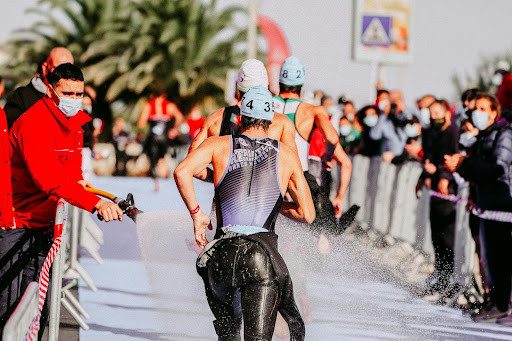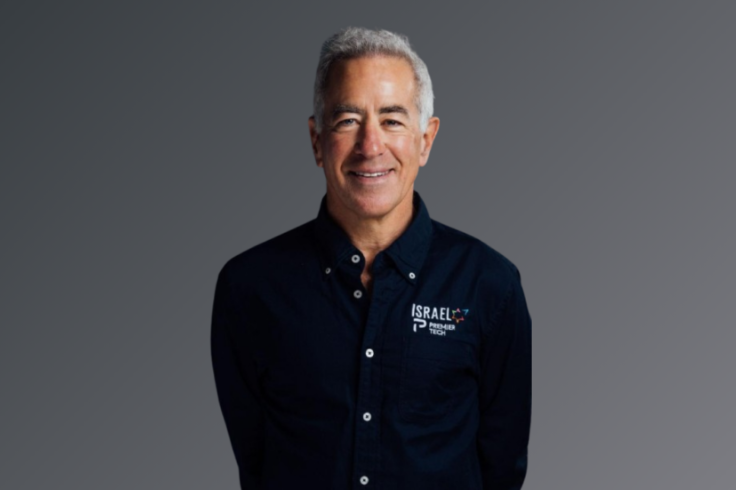Building Bridges Through Sport And Diplomacy: Sylvan Adams On Peace, Progress And The Power Of Connection

Known for his unique approach to bridging divides through sport and cultural exchange, Sylvan Adams has fostered regional cooperation in the Middle East, including his pivotal role in the historic Abraham Accords.
In this insightful conversation, Sylvan, a world-renowned philanthropist, sports enthusiast, and champion of cultural diplomacy, shares his experiences at the White House for the signing of the Accords, his vision for the region's future, the transformative power of sports diplomacy, and personal stories that highlight the potential for peace through human connections.

Sylvan, you were at the White House for the signing of the Abraham Accords. What was the atmosphere like, and do you see the new Trump administration as an opportunity for "AA chapter 2"?
The signing of the Abraham Accords permanently changed the paradigm of Arab relations with their neighbour, Israel. It was a privilege to have been one of the few Israelis to be invited to this historic event, with the pomp and ceremony granted to this remarkable achievement by the US host, President Donald Trump.
I believe that Trump 2.0 will expand, and eventually complete the work begun by his first administration, and that we will see all Arab countries join this Middle East pact, during President Trump's second term, with a tremendous economic and cultural' peace dividend' accruing to the signatories.
You bring a unique angle to international diplomacy in the form of sports diplomacy. How does this work?
Sport is a common language that everyone speaks. As such, sports offer the opportunity to break down barriers between individuals and countries. Competing together in a spirit of sportsmanship can remove traditional misconceptions between people. I have witnessed this first hand, and seen how sport can open the door to new friendships.
You have spent a great deal of time in the UAE with your cycling team; what do you think has been their contribution to regional diplomacy?
The UAE was the first Arab country to open itself up to the rest of the world, ending its isolation and reaping the economic benefits from this open approach. It was an extension of this open and tolerant philosophy that the UAE was the first Arab country, together with Bahrain, to make peace with the Jewish state. Despite the differences that friendly countries may have, we've seen that this peace is enduring from time to time, offering a model for the remaining Arab nations to join and reap the benefits of long-term regional peace.
What is your vision for our region in ten years, and what role does sport have to play in achieving this?
After Trump 2.0, we will see peace in the Middle East, not for ten years, but for 100 years. I say this despite Israel currently fighting wars with seven hostile parties.
Sports exchanges can pave the way for people-to-people contact, cementing the peace agreements signed at the top by regional leaders. We can contemplate a regional World Cup of football or even the Olympic Games, where several Middle Eastern countries, including Israel, act as co-hosts.
This isn't the first time you've mentioned such grandiose projects for the region. How realistic is it in the current climate?
None of these projects are feasible while Israel remains at war. But we are remarkably close to reaching our goals in both Lebanon and Gaza, and the hot wars will be over.
But the real problem is Iran. Unless the Iranian people, possibly with help from Israel and/or the US, remove their malevolent regime, these fanatics will continue to cause turmoil and strife in the Middle East. In contrast, their people suffer under the Mullahs' yoke.
The Iranian people do not quarrel with Israel; it is their regime that 80% of Iranians fear and despise. If they could remove this cancer from their country, we would see the 100 years of peace I mentioned earlier.
You've witnessed firsthand how relationships are built beyond politics. Can you share any personal stories or moments where cultural exchanges changed perspectives?
I was the host of Ironman Israel in 2022. We were designated the 'Middle East Ironman championships'. As such, we had regional competitors, including triathletes from UAE and Bahrain. I was privileged to meet some of them, and we had robust conversations about sports and the regional political situation that were very positive and even productive.
They were impressed with Israel, told me how much they enjoyed visiting our country, and looked forward to returning. Unfortunately, the 2023 and 2024 editions of Israel's Middle East championships were cancelled due to the wars. I hope it will return in 2025 and we will experience peace in my country.
© Copyright 2023 IBTimes AE. All rights reserved.





















